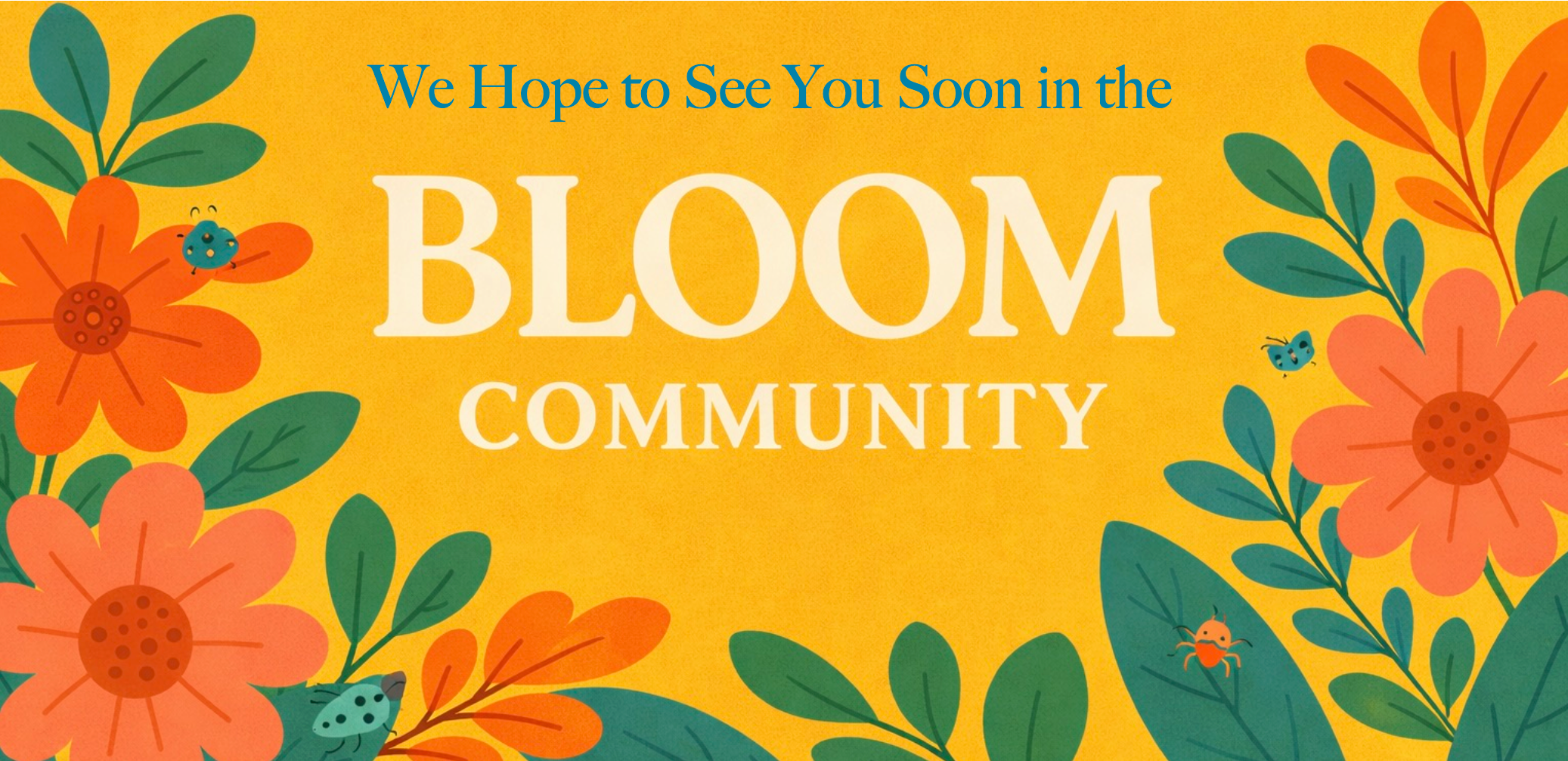Bloom Community
Community of Practice Groups
The Bloom Community provides Community of Practice groups: one type is for parents; the other is for practitioners.
What is Community of Practice?
Community of Practice groups offer a supportive space to explore their experiences, thoughts, and emotions to enhance understanding of ourselves and others, which leads to improved responses to challenging interactions. These groups focus on developing self-compassion, mindful and intentional parenting strategies, rewarding relationships, and the regulation (balance) of energy and emotion.
Trained reflective consultants facilitate these groups, and for practitioners, participation counts toward Infant Mental Health Endorsement reflective supervision and training hours. (1 hour of RC and .5 hours of training per month.)
Key aspects of RTSC Community of Practice groups:
-
Creating a Safe Space:
These groups provide a confidential and non-judgmental environment where participants can openly share their experiences and feelings (read: vent).
-
Self-Reflection:
Participants slow down to examine their beliefs, values, and reactions to better understand their own behaviors.
-
Self-Compassion:
The practice helps participants develop self-compassion, a key factor in enabling them to adopt mindful, intentional practices that prevent them from reacting impulsively.
-
Improved Relationships:
By fostering self-awareness and understanding, participation in these groups can lead to stronger and more positive relationships with, in the case of parents, their children, co-parents, extended family, and their community of other parents and professionals who work with their children. In the case of practitioners, these groups can strengthen and improve relationships with their clients/patients, co-workers, and supervisors.
-
Energetic and Emotional Regulation:
Parents think together about strategies to nurture healthy and fun, energetic offloading and emotional expression in themselves and their children to gain skills in restoring regulation, AKA nervous-system balance. Practitioners think together about strategies to improve their nervous system balance, both during sessions with clients and with life in general, to prevent burnout and increase enjoyment of their work.
-
Skills Practice:
Participants reflect on their experiences, both challenges and wins, of practicing the techniques taught by Children in Bloom based on Worldwide Indigenous practices and NeuroRelational Care.
-
Resource Sharing:
Parents can also share and discuss resources that are supporting them in their parenting journey.
Benefits of participating in RTSC Community of Practice groups:
-
Improved relationships: By fostering self-compassion and empathy toward others, these groups can strengthen a parent's bond with their children, co-parents, and community, and they can enhance relationships with clients, colleagues, and supervisors.
-
Enhanced skills: Participants develop the effective and mindful strategies taught by Children in Bloom.
-
Increased regulation of energy and emotion: Participants gain a better understanding of their own energy levels and emotions, and develop skills to regulate (balance) them effectively.
-
Reduced stress and improved well-being: Reflective practice help participants feel more confident and capable, leading to reduced stress and improved overall well-being.
-
Positive impact on child development: By fostering healthy relationships with children and promoting energetic and emotional regulation, these groups can have a positive impact on children's development.

